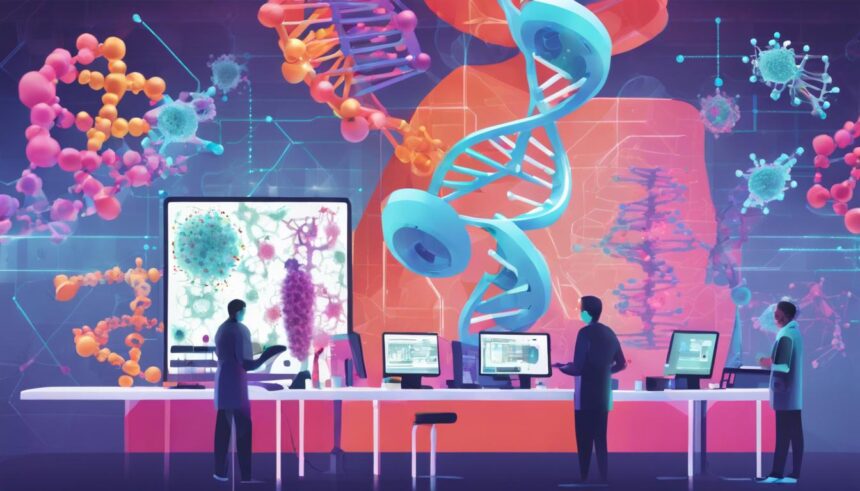In a groundbreaking collaboration, SimBioSys and General Inception aim to transform the landscape of cancer treatment through the use of AI and biophysical modeling, targeting more effective and safer therapies.
In a world where the quest for personalized and effective cancer treatment grows ever more urgent, a groundbreaking collaboration between SimBioSys, an innovator in precision oncology, and General Inception, a company igniter with a focus on health advancements, promises to chart a new course in the fight against this complex disease. Announced on April 3, 2024, this strategic partnership heralds an era of accelerated cancer drug development, leveraging artificial intelligence (AI) and biophysical modeling to unlock the potential of precision dosing, thus paving the way for treatments that are not only more effective but also significantly safer for patients.
At the heart of this collaboration lies SimBioSys’ PhenoScope, a powerful proprietary technology that proffers an in-depth analysis of the multifaceted nature of tumors. Capable of processing a wide spectrum of multi-modal data, PhenoScope provides unparalleled insights into the spatial and biophysical characteristics of tumors, which were previously opaque when relying on single data types alone. With data from over 12,000 cancer patient profiles covering 33 solid cancers and a virtual tumor bank that includes more than 20,000 spatially resolved tumors, the depth and breadth of information available are unprecedented.
PhenoScope’s capability extends beyond mere analysis. It can predict how individual patients will respond to various cancer therapies over time with remarkable precision. This predictive power spans drug binding, metabolic response, and ideal dosing across numerous scenarios and delivery methods, thereby significantly reducing the incidence of unwanted side effects, increasing treatment efficiency, and minimizing wastage.
General Inception, on the other hand, brings to the table a portfolio of over 40 companies, with a substantial focus on therapeutic advancement. Founded in 2020, it has set ambitious goals to augment its therapeutic holdings significantly within the next five years. This partnership ensures that all new oncology drug projects under General Inception will benefit from SimBioSys’ advanced PhenoScope platform and its suite of drug development services.
The implications of this synergy are vast, promising not only to reduce the time to clinical trials but also to improve patient outcomes through a more refined approach to precision medicine. This initiative aligns with the broader movement towards dose optimization in oncology drug development, a priority underscored by the US Food and Drug Administration’s Oncology Center of Excellence through its Project Optimus.
The criticality of this development is underscored by the current state of cancer drug development, which is both a time-intensive and costly endeavor. With over 2,000 oncology products under development and a global spending on cancer medicines projected to reach $375 billion by 2027, the need for more efficient and targeted drug development processes could not be more pressing. It is within this context that the partnership between SimBioSys and General Inception emerges as a beacon of hope.
Tushar Pandey, CEO of SimBioSys, articulated the partnership’s potential, stating it will “introduce much-needed precision to the drug development process,” ultimately benefiting patients through more precise and effective treatments. Similarly, Venkat Reddy, Chief Scientific Officer of General Inception, hailed the collaboration as a “significant milestone in the pursuit of more effective, personalized cancer therapies.”
As the integration of AI and biophysical modeling continues to redefine the landscape of oncology, the partnership between SimBioSys and General Inception stands as a testament to the power of innovation in transforming patient care. Through the strategic leverage of cutting-edge technology, this collaboration not only spotlights the evolution of cancer treatment but also embodies the promise of a future where cancer therapy is as individual as the patients it seeks to heal.





